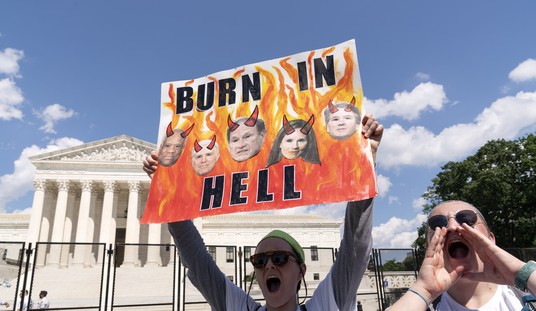A word of caution to everyone who feels that they are doing some good in the world by being generous tippers: according to Politico, tipping has a “racist history”:
You might not think of tipping as a legacy of slavery, but it has a far more racialized history than most Americans realize. Tipping originated in feudal Europe and was imported back to the United States by American travelers eager to seem sophisticated. The practice spread throughout the country after the Civil War as U.S. employers, largely in the hospitality sector, looked for ways to avoid paying formerly enslaved workers.
One thing here is correct: I don’t think of tipping as a legacy of slavery, and I’ll wager that few people outside of the Rev. Dr. Barber II’s immediate circle of activist friends do either.
The Rev. Dr. Barber II’s article is one long, desperate pitch for a horrible idea: raising the mandatory minimum wage to $15 an hour. The Rev. Dr. Barber II’s justification for doing so is that it will “end a pernicious legacy of slavery.”
As Darth Vader once said to Luke Skywalker: “Impressive…most impressive.”
But not really.
Mandatory minimum wage laws don’t outlaw tipping, so the rampant racism of offering people cash based on how well they do their jobs will continue unabated.
Because of the allegedly “racialized history” of gratuities, the Rev. Dr. Barber II takes umbrage with the entire notion of having to hustle for a buck:
Tipping further entrenched a unique and often racialized class structure in service jobs, in which workers must please both customer and employer to earn anything at all.
Somebody should tell the good Rev. Dr. about all of the people who aren’t in the service industry and work on commission alone. I sold real estate to pay for college back in the day and my guaranteed minimum wage was $0.
Much of what the Rev. Dr. Barber II avers here is more wobbly than an old wooden building during the San Francisco earthquake once some context is applied.
A prime example:
That’s why national action to finally reverse this particular vestige of slavery is so vital. No one can live on $2.13 an hour—a poverty wage.
True, no one can live on $2.13 an hour — the wage paid by some employers to people working for tips — and no one is. Yes, there is a wide range as far as the amount of tips that can be earned in various jobs, but the people working the $2.13-an-hour gigs are making tip money too.
Again, mandatory minimum wage laws don’t outlaw tipping, so the repetition of the idea that this “vestige of slavery” will be ended or reversed is just ridiculous.
Mandatory minimum wage hikes to $15 an hour or more bring a host of long-term problems with them that are usually dismissed or ignored by their advocates.
Two big ones are price increases passed on to consumers and the reduction of work hours for employees.
Small businesses can really struggle with — or even go out of business because of — the hikes.
The unintended bad consequences of feel-good legislation are never discussed beforehand by proponents and are almost always numerous.
In the case of service workers who rely on tips, the higher minimum is offset by fewer tips.
The United States Census Bureau:
“My research shows that tipped workers are better off in terms of the wages they get from their employer, but their tips decrease,” said Maggie R. Jones, a senior economist at the Census Bureau, who published a working paper on the topic through the Census Bureau’s Center for Administrative Records Research.
The Census Bureau research shows that at best, things stay the same for tipped workers but pushing for higher mandatory minimums can ultimately have a negative effect:
“While servers may benefit from a more stable wage, their hourly compensation does not appear to increase.”
- When increases in the tipped minimum wage stayed below $5 per hour, more servers were hired. But for states that increased their minimum above about $5, server employment remained constant or decreased.
Service industry workers aren’t always on board with higher minimum wages either:
But in Maine, servers actively campaigned to overturn the results of a November referendum raising servers’ hourly wages from $3.75 in 2016 to $12 by 2024, saying it would cause customers to tip less and actually reduce their take-home income.
Mandated higher minimum wages follow an old pattern: when the government tries to help it is quite often not very helpful.
There are a number of arguments that have been made for a higher minimum wage. Most of them are feelings-based and push mathematical and economic realities to the periphery.
Using the service industry to advocate for higher minimums is weak on the economic merits alone.
The notion that a higher minimum wage for cocktail waitresses is going to somehow “reverse” a “vestige” of slavery that almost no one in the 21st century considers to be one is positively nonsensical.










Join the conversation as a VIP Member